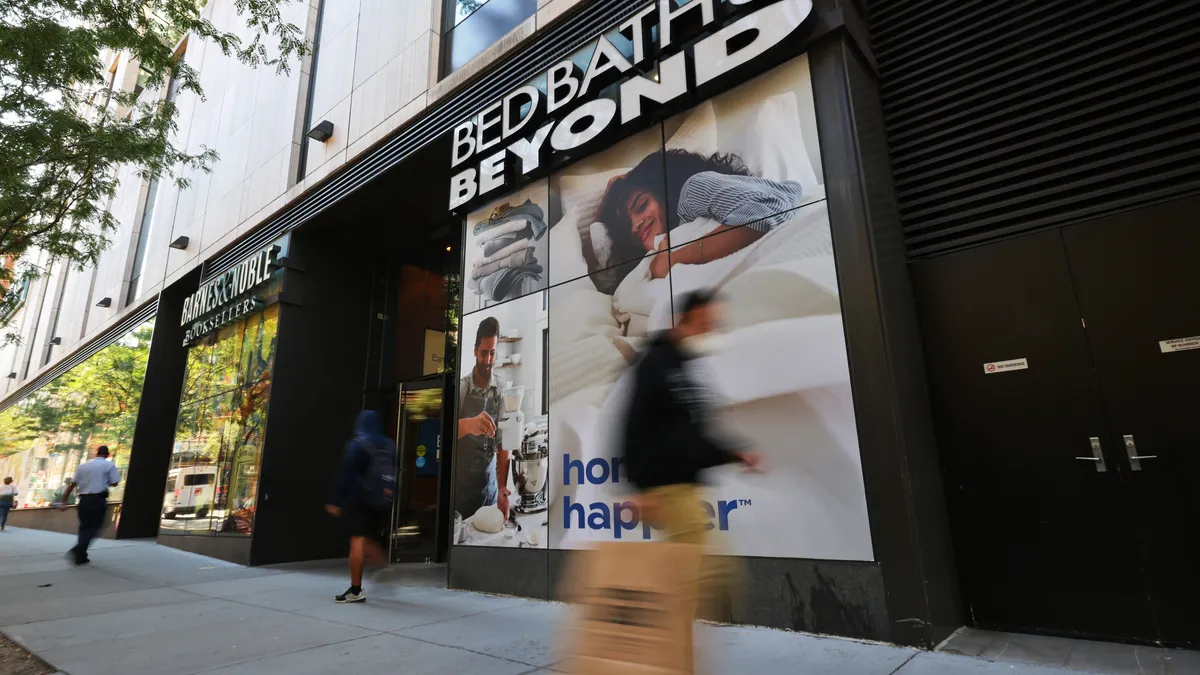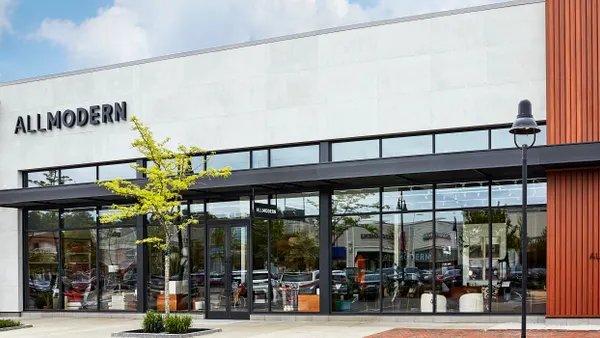Dive Brief:
- Amazon plans to open "300 to 400" physical bookstores, the Wall Street Journal reported Tuesday, citing a comment by Sandeep Mathrani, CEO of mall operator General Growth Properties.
- UPDATE: General Growth Properties released a statement on Wednesday saying that Mathrani's comments were "not intended to represent Amazon's plans." A spokesperson from Amazon declined to comment on the news on Wednesday.
- Mathrani made the comment toward the end of earnings call on Tuesday after an analyst asked about shopping trends seen during the holiday season and their impact on mall traffic. The transcript for the call and the full quote can be found here.
- An anonymous source with knowledge of the matter confirmed to the New York Times Tuesday that Amazon is planning to open more stores, but added that the plans are modest, particularly compared to the reports of 300-400 stores.
Dive Insight:
When Amazon opened its first and only brick-and-mortar bookstore, everyone was asking themselves the same question: Is the store a one-time thing, or the start of something bigger? After hearing Sandeep Mathrani's comments, it looks like something much bigger.
Amazon opened its first physical bookstore, Amazon Books, in November, but was testing out brick-and-mortar even before then, with permanent kiosks in Westfield Corp. malls that sold devices, apparel, and cases. The bookstore, located in Seattle, WA, is stocked with about 5,000 titles and Kindle e-book readers.
At the time of its opening, the Washington Post asked Amazon whether the company was planning to open more bookstores. Spokeswoman Deborah Bass was quoted as saying: “We’ll see. We’re certainly excited about this one.”
The news did have an immediate effect on Barnes & Noble Inc., with the retailer’s shares slipping 1.7% to $7.95 in after-hours trading, which shows how big of a force Amazon would be if it enters the brick-and-mortar space. However, as the Journal points out, it would likely take the company years to reach leasing deals and hire staff for its physical locations.
The reported move would give Amazon something it has been missing: Brick-and-mortar stores. Despite the pressures that stores face as many shoppers increasingly move to digital and mobile devices, brick-and-mortar has one advantage that e-commerce never will: The opportunity for the customer to touch, feel, and see the products. It's an experience that many experts say cannot be duplicated online.
In the earnings call, Mathrani noted another benefit of having physical retail stores on the earnings call: Processing returns, which are typically cheaper for brick-and-mortar retailers compared to e-retailers.












